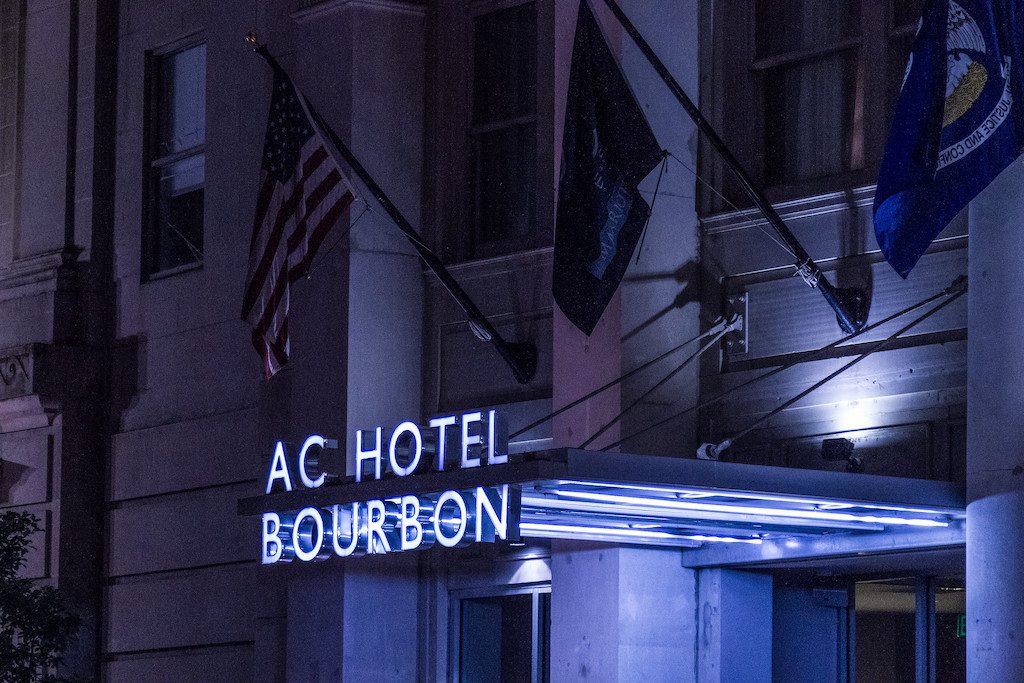Skift Take
Major hotel companies are massive enough. Mergers and acquisitions departments need to think more about smaller, strategic deals rather than mega-takeovers that take tens of billions of dollars and years to integrate companies.
The airline industry’s last two decades of consolidation are no longer the blueprint analysts once saw as a foregone conclusion for hotel companies.
Hotel industry analysts expected massive rounds of industry consolidation due to the pandemic. Instead, hotel companies have focused more on conversions — deals centered around organic growth that involves the owner of an existing hotel to take on a new brand affiliation.
While mergers and acquisitions aren’t entirely off the table, Marriott leaders don’t expect a repeat performance of its $13 billion Starwood Hotels & Resorts takeover in the future.
“First of all, you need a big checkbook to get one done,” Timothy Grisius, the global mergers and acquisitions and real estate officer at Marriott International, said Monday at a reporter breakfast at the 2021 Americas Lodging Investment Summit in Los Angeles. “I think people are trying to keep their house in order today and make sure that they act in a financially disciplined way. There’s not a lot of need to grow even larger for a company like us. We do that organically and don’t necessarily need to buy additional brands.”
Hotel companies may analyze and pursue larger mergers and acquisitions, but there likely won’t be much traction, Grisius added.
The consolidation, or lack thereof, forecast comes amid a faster-than-expected recovery in the leisure sector. At the worst point of the pandemic, rumors revived about a potential Accor-IHG pairing as well as predictions smaller players like Wyndham Hotels & Resorts, Choice Hotels, and Extended Stay America were low-hanging fruit for global giants like Marriott and Hilton.
While Extended Stay America traded during the pandemic, its $6 billion joint takeover came from investment groups Blackstone and Starwood Capital rather than a competing hotel company.
“I think the biggest thing right now is the difference between buyer expectations and sellers,” said Leeny Oberg, Marriott’s chief financial officer. “You’ve got the reality that, depending on what kind of player you’re talking about, the bigger ones would be looking for kind of one-offs that can fill in a hole rather than needing to go and do very large kind of transformational deals.”
The buyer-seller price expectation disparity, along with various rounds of federal pandemic relief, played a major part in why there hasn’t been a massive wave of hotel transactions so far.
But smaller, regional acquisitions could complement organic brand growth. Accor has generally followed this trend in beefing up its U.S. footprint, adding brands like 21c Museum Hotels and SBE in recent years.
Smaller brands might get dissuaded from the hefty costs required to invest in technology infrastructure. That could be an added incentive that eventually drives some smaller, regional brands to consider a sale, Marriott CEO Anthony Capuano said.
Marriott already follows the trend. AC Hotels was concentrated in Spain when Marriott first partnered with the brand in 2011. Acquiring South Africa-based Protea Hotels in 2014 gave the company a significant presence in sub-Saharan Africa.
“You may see some of these smaller transactions that follow a pattern where we have a small regional player that allowed us to get a footprint in a market where we struggled to grow,” Capuano said.
But the industry shouldn’t necessarily gear up for a major wave of these deals, either.
“I think you’ll see some of that, but Leeny’s point about the gap between the bid and the ask may mute the volume of transactions,” Capuano added.
Have a confidential tip for Skift? Get in touch
Tags: coronavirus, coronavirus recovery, marriott, mergers and acquisitions
Photo credit: Smaller, regional acquisitions like Marriott's AC Hotels takeover will likely be the hotel industry's new M&A norm, according to Marriott executives. Tony Webster / Flickr
